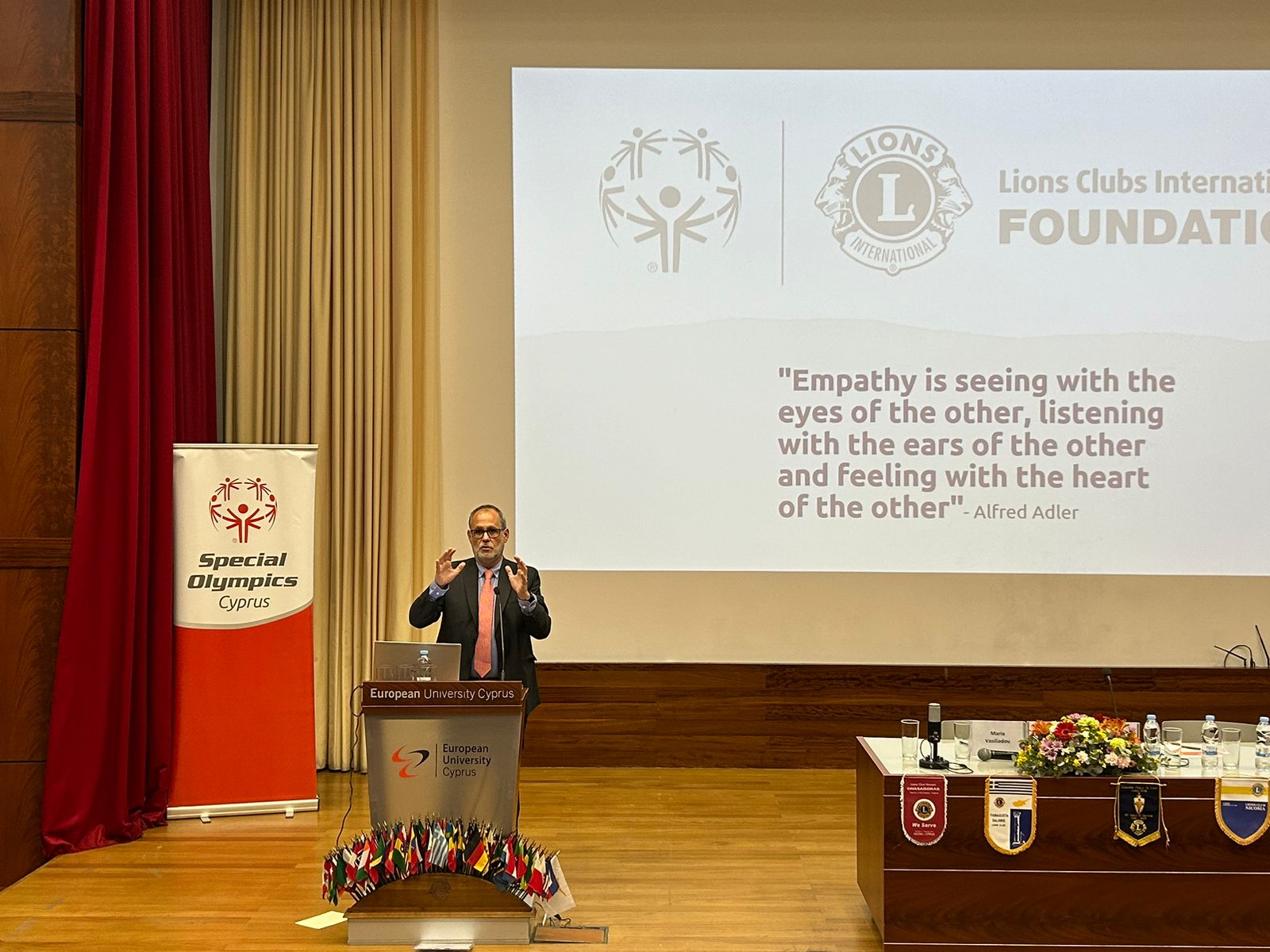A joint event celebrating the vital role of athletes with disabilities in the Olympics was held on Wednesday by the Nicosia Lions NGO, Cyprus Special Olympics, and the European University of Cyprus.
Titled “Diversity, Equality, Inclusion and Special Olympics,” the gathering aimed to show that diversity is part of everyday life and that inclusion begins with education and collective action. Speakers highlighted the need to create a society where people with intellectual disabilities are fully accepted and supported.
“We are unfortunately not yet a society of inclusion and acceptance,” said communication specialist, Vasiliki Christofi who hosted an interactive workshop on effective dialogue and the importance of avoiding prejudices.

She stressed that while society has made significant progress in easing people with intellectual disabilities into a collective community, there is still a long way to go. “It’s not enough to listen; we must set aside our assumptions and put ourselves in others’ shoes,” she said.
Christofi emphasised that fair language, active listening, and rejecting stereotypes are key not only to integrating people with intellectual disabilities in sports but also to ensuring Cyprus is proudly represented on the global stage.
The Special Olympics, active in 193 countries, enable athletes with physical or intellectual disabilities to compete in Olympic-style sports while promoting fitness, understanding, and acceptance.
In Cyprus, the organisation serves more than 600 athletes and works to end discrimination and build confidence. Two athletes, Christos Kasoulides and Nasia Kimisi, shared their experiences. “I found my power and my people through sports,” Kasoulides said, while Kimisi expressed pride in representing Cyprus internationally.
For over a century, Lions Clubs International has focused on community needs, including support for children with mental and intellectual disabilities.
At the event, the European University, Special Olympics, and the Nicosia Lions signed a memorandum to continue joint initiatives promoting inclusion.

Keynote speaker Dr. Gonzalo Larrabure, director of Global Health Programmes for Special Olympics Latin America, reminded attendees that “educated decisions must reshape our understanding of people with intellectual disabilities.” Calling “normality” a social construct, he urged the audience to welcome difference and “learn from the unfamiliar.” He concluded, “Empathy is what makes us human.”






Click here to change your cookie preferences